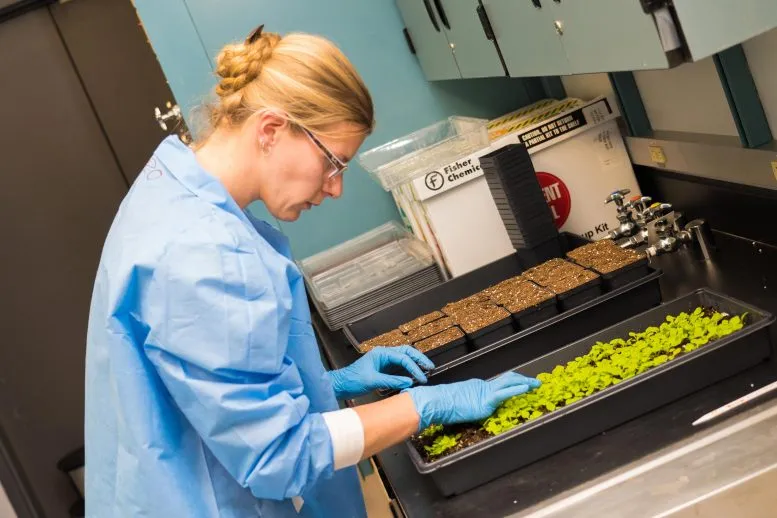Cowpea Mosaic Virus Is A Plant Virus That Infects Beans. It Has A Special Power You May Not Know: When Injected Into Tumors, It Can Activate The Immune System To Treat Cancer -- Even Metastatic Cancer, And Prevent Its Recurrence. Researchers At The University Of California, San Diego And Dartmouth College Have Been Studying And Testing Cowpea Mosaic Virus As A Cancer Immunotherapy In The Form Of Nanoparticles For The Past Seven Years, And Reported Encouraging Results In Laboratory Mice And Companion Dog Patients.
Its Effectiveness Is Unmatched By Other Anti-cancer Technologies Studied By Researchers. However, The Exact Reason For Its Effectiveness Has Been A Mystery.
In A Recent Study Published In The Journal Molecular Pharmacology, Researchers Found Some Details That Explain Why Cowpea Mosaic Virus Is Particularly Effective Against Cancer. The Beauty Of This Method Is That It Can Not Only Solve That Tumor, But Also Initiate A Systematic Immune Response To Any Metastatic And Future Tumor.
The Work Was Led By Nicole Steinmetz, A Professor Of Nanoengineering At The Jacobs School Of Engineering At The University Of California, San Diego, And Steven Fiering, A Professor Of Microbiology And Immunology At The Geisel School Of Medicine At Dartmouth University. Steinmetz And Fiering Are Co Founders Of Mosaic Immunoengineering Inc., A Biotech Start-up Company That Has Licensed Cowpea Mosaic Virus Nanotechnology And Is Working To Transform It Into Clinical Cancer Immunotherapy.
This Study Helps To Verify The Effectiveness Of Cowpea Mosaic Virus Nanoparticles As Major Cancer Immunotherapy Candidates. Now There Are Mechanism Data To Explain Why It Is The Most Effective Candidate Drug, Which Further Reduces Its Risk In Clinical Transformation.
Steinmetz, Fiering And Their Team Have A General Understanding Of How Their Main Candidate Drugs Work. Cowpea Mosaic Virus Nanoparticles Are Infectious In Plants, But Not In Mammals. They Are Injected Directly Into Tumors As Bait For The Immune System. Immune Cells In The Body Recognize Virus Nanoparticles As Foreign Agents And Are Inspired To Attack. When Immune Cells See Viral Nanoparticles In Tumors, They Attack Cancer Cells. The Advantage Of This Method Is That It Can Not Only Solve A Tumor, But Also Initiate A Systematic Immune Response To Any Metastatic And Future Tumor. Researchers Have Seen It Play A Role In Mouse Models Of Melanoma, Ovarian Cancer, Breast Cancer, Colon Cancer And Glioma. They Also Successfully Used It To Treat Patients With Melanoma, Breast Cancer And Sarcoma In Dogs.
It Is Also Interesting That Cowpea Mosaic Virus Is The Best In Triggering Anti-cancer Immune Response Compared With Other Plant Viruses Or Virus Like Particles Studied By Researchers. Lead Author Veronique Beiss Said: "we Have Proved Its Role. Now We Need To Prove What Makes It So Special That It Can Induce This Response. This Is The Knowledge Gap We Want To Fill.".
To Find Out, The Researchers Compared Cowpea Mosaic Virus With Two Other Plant Viruses Of The Same Shape And Size In The Same Family. A Virus, Cowpea Severe Mosaic Virus, Has A Similar RNA Sequence And Protein Composition. The Other, Tobacco Ringspot Virus, Is Only Structurally Similar. "We Think These Will Be A Good Comparison To See If This Powerful Antitumor Effect Works In This Particular Family Of Plant Viruses," Steinmetz Said. "We Can Do More In-depth And Non Homologous Sequence Mining."
Researchers Created Nanoparticle Immunotherapies Based On Plant Viruses And Injected Them Into Melanoma Tumors In Mice. Each Candidate Immunotherapy Was Administered Three Times With An Interval Of 7 Days. The Mice Given Cowpea Mosaic Virus Nanoparticles Had The Highest Survival Rate And The Smallest Tumor. After The Second Administration Of Cowpea Mosaic Virus Nanoparticles, The Tumor Growth Basically Stopped.
The Researchers Then Extracted And Analyzed Immune Cells From The Spleen And Lymph Nodes Of Treated Mice. They Found That These Plant Viruses Have A Protein Shell That Activates Receptors On The Surface Of Immune Cells, So-called Toll Like Receptors. But Cowpea Mosaic Virus Is Unique In That It Activates An Additional Toll Receptor Through Its RNA. Activation Of This Additional Receptor Triggers More Types Of Pro-inflammatory Proteins Called Cytokines, Which Help Improve The Anti-cancer Response Of The Immune System. Beiss Explained That, In Other Words, Triggering A Stronger Inflammatory Response Makes The Immune System Work Harder To Find And Get Rid Of Tumors.
The Team's Analysis Also Found Another Unique Way For Cowpea Mosaic Virus To Promote Immune Response. Four Days After The Second Dose, The Researchers Measured High Levels Of Cytokines. And These Levels Have Remained At A High Level For A Long Time. "We Didn't See This In The Other Two Plant Viruses. Cytokine Levels Peaked Quickly, Then Decreased And Disappeared," Beiss Said. "This Prolonged Immune Response Is Another Key Difference That Makes Cowpea Mosaic Virus Different.".
Although This Reveals The Excellent Efficacy And Efficacy Of Cowpea Mosaic Virus, Steinmetz Acknowledges That More Work Needs To Be Done. "The Answers We Find Here Open Up More Questions," She Said. "How Is This Virus Nanoparticle Processed In Cells? What Happens To Its RNA And Protein? Why Can The RNA Of Cowpea Mosaic Virus Be Recognized, But The RNA Of Other Plant Viruses Cannot? Understanding The Detailed Journey Of This Particle In Cells And Its Comparison With Other Particles Will Help Us Determine What Makes Cowpea Mosaic Virus Unique To Cancer.".

